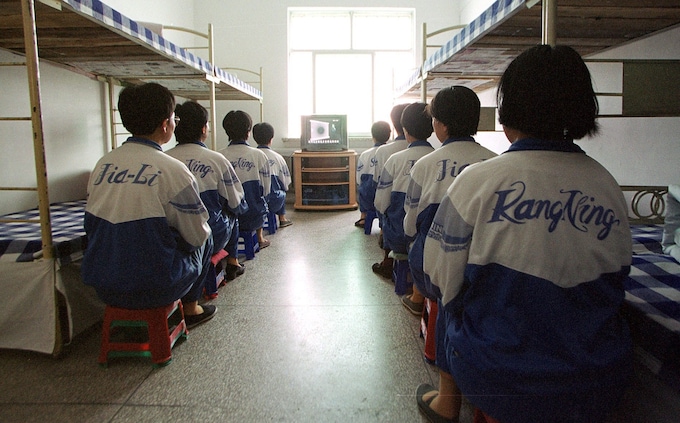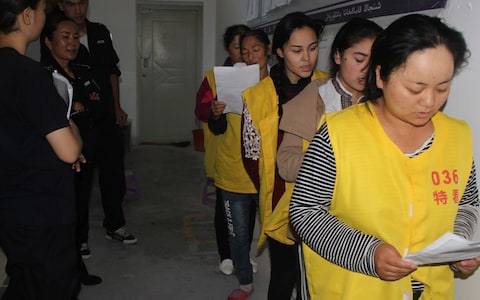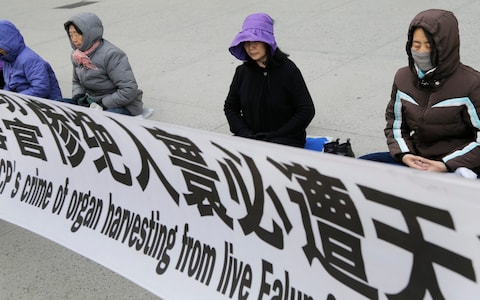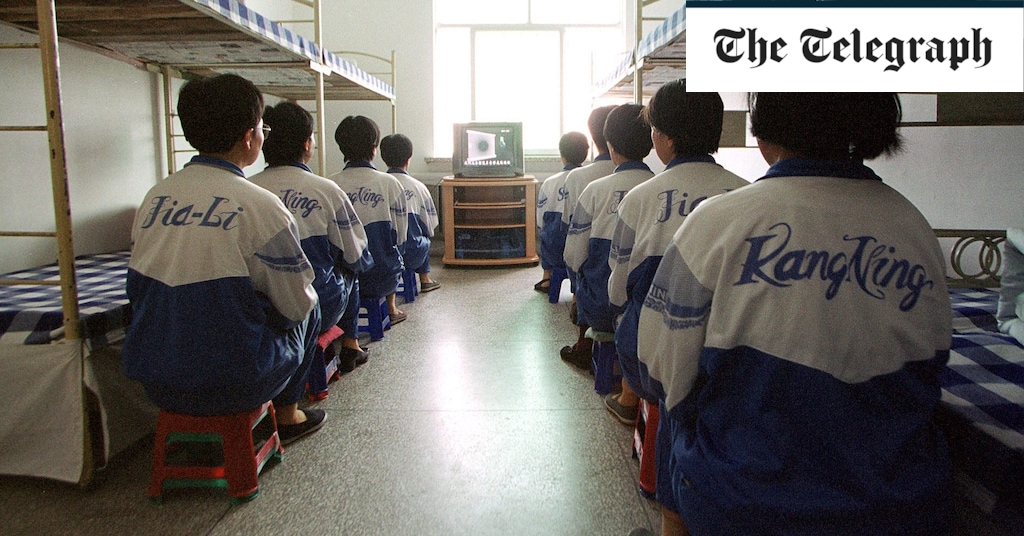aziqbal
SENIOR MEMBER

- Joined
- Aug 26, 2010
- Messages
- 7,403
- Reaction score
- -10
- Country
- Location
How Western medics can help end forced organ harvesting in China
Transplant entities and surgeons must join the global fight against the Chinese Communist Party’s heinous crimes

A tribunal said it was ‘beyond reasonable doubt’ that China had been using innocent Falun Gong practitioners as a source of transplant organs for many years CREDIT: John Leicester/AP Photo
Forced organ harvesting is a state-sanctioned Chinese programme in which prisoners of conscience are executed for their organs. Every year, an estimated 60,000 to 90,000 transplants are carried out as part of a nationwide industry worth more than £800 million.
In June 2021, the United Nations stated that the victims were religious minorities, including Falun Gong practitioners and Uyghurs, who are held in detention centres across China.
These people “are arbitrarily arrested, detained in camps, tortured, face sexual violence, disappear while in detention and are murdered on a vast scale for their organs,” Lord Hunt of Kings Heath told British politicians a year later.
Much of what we suspected about forced organ harvesting was officially confirmed by a UK-based independent people’s tribunal, called the China Tribunal, which was formed in 2019.
The group examined multiple sources of evidence, including transplant numbers, medical testing of detained prisoners, recorded phone calls to transplant hospitals, as well as testimony from surgeons and prisoners.
Releasing its conclusions in March 2020, the tribunal said it was “beyond reasonable doubt” that China had been using innocent Falun Gong practitioners as a source of transplant organs for many years.

The United Nations said that victims are religious minorities, including Uyghurs, who are held in detention centres across ChinaCREDIT: Adrian Zenz/Senior Fellow in China Studies at the Victims of Communism Memorial Foundation
For this harvesting to occur, medical physicians in China must be complicit. It is difficult to fathom, especially when considering the “first, do no harm” oath that doctors are expected to abide by in their line of work.
At the same time, there is a risk that many of the western medical institutions which strike commercial partnerships with reciprocal structures in China could also be implicated.
For example, a UK transplant surgeon might provide training to a Chinese surgeon who returns to work in a state-run hospital where forced organ harvesting is occurring, medical journals might accept research conducted using unethically sourced organs, or medical equipment manufacturers might supply equipment for optimising organ viability to China which are used in organ harvesting.
Worryingly, campaigners have reported accounts of nurses in the UK turning a blind eye to suspicious cases where a patient has travelled to China, received an organ transplant in a matter of days and then returned for post-opération care. There have also been reports of transplant surgeons effectively arguing “I’m only providing the training” when challenged about training a high-risk Chinese surgeon.
Complacency is complicity
Last year, international law firm Global Rights Compliance produced the world’s first business and human rights report on the international legal responsibilities of medical institutions and their professionals. It advised them to ensure that their work is governed by clear due diligence policies.Global Rights Compliance found a general complacency in the medical sector to address this issue. The prevailing attitude appears to be so long as the individual or organisation does not cause the harm themselves, the responsibility lies elsewhere. Well, that is wrong.
While there is no internationally agreed definition of “complicity,” international law provides for various forms and degrees of criminal liability if an individual carries responsibility for the crimes committed by another.
The conduct which aids or abets the crime must have a ‘substantial effect’, but it does not have to be criminal in itself.
On this basis, if a medical professional provided clinical training to transplant surgeons involved in forced organ harvesting, this conduct could amount to complicity.
In such an instance, it would be difficult to argue that the medical training was provided without knowledge of assisting a crime, or without being aware of the criminal intent.

Practitioners of Falun Gong, meditate and exercise outside of the Chinese consulate in New York, in protest at organ harvestingCREDIT: Seth Wenig/AP Photo
In a recent French case against the multinational cement company Lafarge, in which the company was indicted for complicity in crimes against humanity committed by ISIS, France’s Supreme Court ruled that “one can be complicit in crimes against humanity even if one doesn’t have the intention of being associated with the crimes committed.”
Therefore, even if a medical professional or entity has no intention of causing harm or does not cause the harm directly, they can be complicit. And in any interaction with China, the risk of complicity is very real. This is the point that we must drive home.
The institutions that carry the most risk in the UK are universities, hospitals, independent professional bodies, medical journals, and transplantation societies that have collaborations in clinical training, clinical research, grants and funding, and the provision of medical equipment and drugs.
To date, there have been no prosecutions. However, given the considerable number of active collaborations, unless the medical community acts now, institutions and those that work in them may well find themselves associated with – and prosecuted for – crimes against humanity, the effects of which would be devastating.

How Western medics can help end forced organ harvesting in China
Transplant entities and surgeons must join the global fight against the Chinese Communist Party’s heinous crimes
